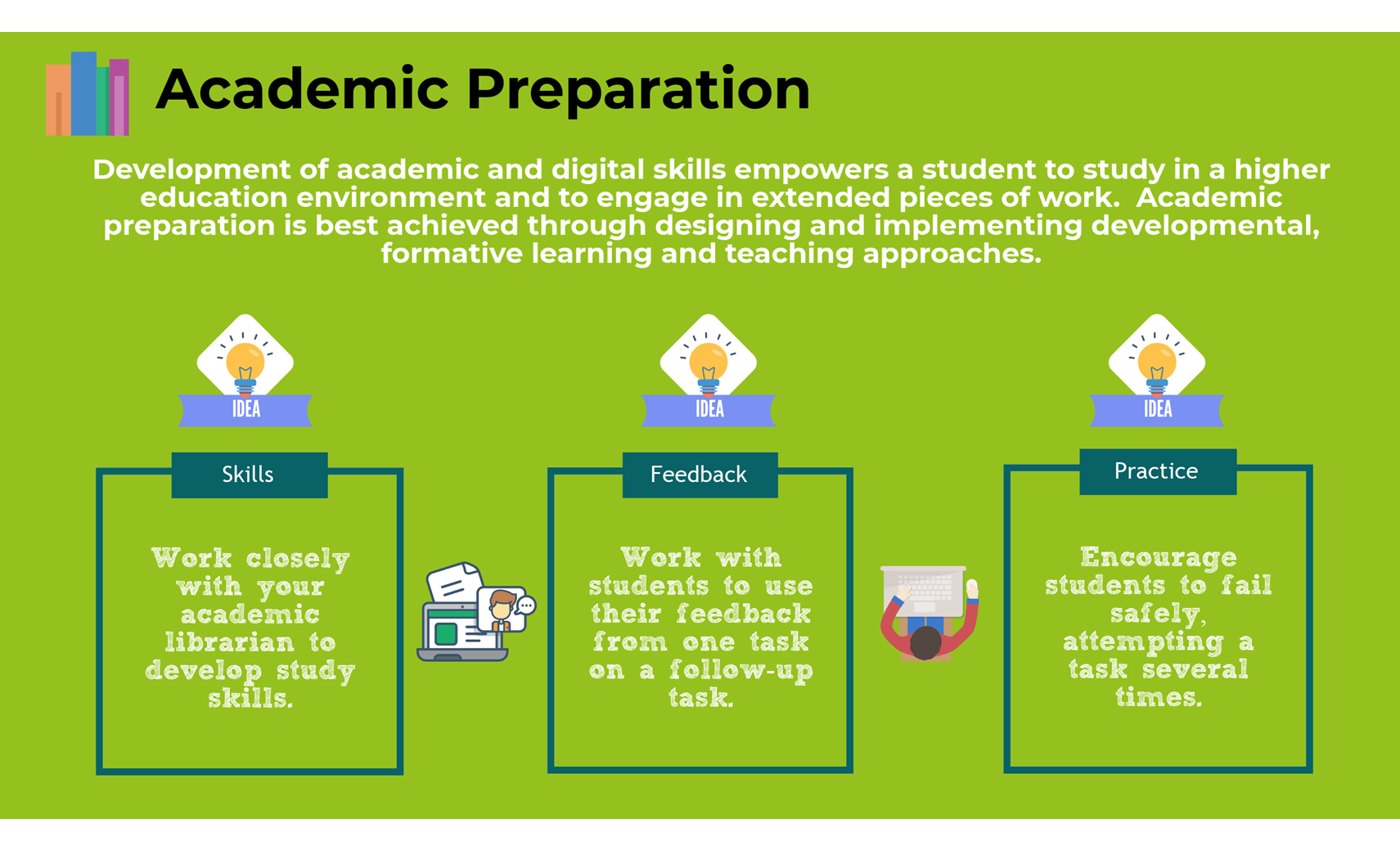Leeds Beckett University - City Campus,
Woodhouse Lane,
LS1 3HE
academic preparation
Students enter higher education with a variety of previous experiences and some, unsurprisingly, arrive ill equipped for the demands of higher education, expecting a learning environment similar to school.
Development of academic and digital skills empowers a student to engage in a higher education environment and is essential if students are to become independent learners capable of engaging in extended pieces of work, research and critical thinking, which are the core elements of working at degree level. The sooner a student is able to engage academically, the more likely it is that they will progress and succeed on their course.
Academic preparation of first-year students is best achieved through proactively designing and implementing developmental, formative teaching approaches and assessment . Providing students with opportunities and a safe space to fail and then learn with developmental feedback is possibly the most important thing we do to support their learning and to nurture their academic confidence. Clarity of expectations pre arrival and during induction is key.
Carving out time for individual feedback can be challenging, particularly in large cohorts. However, where class time is being used primarily for delivery, it may be worthwhile reconsidering using this time for relationship building, feedback, dialogue and the use of on campus specialist facilities, rather than the traditional didactic lecture which can now, post covid, be delivered as a synchronous or asynchronous resource.

LLI - Academic writing support
LLI - Library resources - treasure hunt
Pauline Fitzgerald - Peer mentoring

